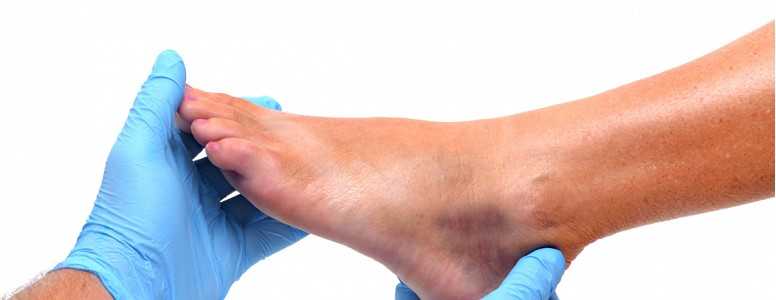A nurse with type 1 diabetes has warned others with type 1 about a foot-related diabetes complication.
Lesley Weeks, 59, has had diabetes for 30 years and had never experienced any problems until a pain struck her on holiday.
Speaking to the Northern Echo newspaper, the urgent care nurse, said: “About 10 years ago I was in Tenerife on holiday, I was walking along and felt a sharp excruciating pain in my right foot.
“It became red and swollen. Being a nurse, I did all the right things, resting it, keeping it upright when possible and so on. When I got back home I had x- rays and it was discovered that I had a condition called Charcot foot.”
The condition is a type of bone deformity that develops in people who have significant nerve damage, known as diabetic neuropathy. If the condition develops, it can lead to disability and in some cases may require amputation.
Since then, Lesley said she has endured many problems with her feet and now takes antibiotics and strong painkillers, alongside her insulin.
The 59-year-old said: “Just after Christmas I lost feeling in both my feet and I developed huge blisters in both feet. I woke up one morning and one of them had burst. I just had a hole in my foot. I was so upset.
“Since then I have been visiting the podiatrists every week to have them dressed. I am very careful. As a nurse and someone who has had diabetes many years, I know the risks. But I still get caught out sometimes.”
Lesley now regularly sees a specialist healthcare team at North Tees and Hartlepool NHS Foundation Trust to keep a close eye on her feet.
She added: “Every bit of your body is affected by diabetes. I just want to warn others in the same position to be cautious and mindful of what can happen.”
Claire O’Malley, a high-risk specialist podiatrist at the trust, said: “They may not notice an issue until the end of the day. By then they may have developed the start of an ulcer which can cause further damage. Working together with the diabetes specialist nurses, consultants and dietitians, we treat and advise our patients. You can never be too careful. Our advice is to regularly check your feet. It’s about early intervention.”
Keeping blood glucose under good control and checking your feet for any changes or signs of damage help to reduce foot problems developing. If you spot changes in your feet or any damage, it is important to let your diabetes health team know.
Eating natural, healthy food and avoiding processed food, as best you can, is a good way to reduce the risk of nerve damage and foot problems occurring. Many people with type 1 diabetes have found reducing carbohydrate intake and upping the amount of healthy fats allows them to keep control of sugar levels better.
What's new on the forum? ⭐️
Get our free newsletters
Stay up to date with the latest news, research and breakthroughs.








